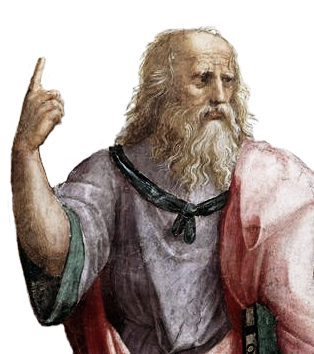The ring of Gyges, block producers and the absence of activist voting...
In the story of the Ring of Gyges as told by Plato, an honest man and a dishonest man both have a ring of invisibility - which allows them to do their best and their worst:

Suppose now that there were two such magic rings, and the just put on one of them and the unjust the other; no man can be imagined to be of such an iron nature that he would stand fast in justice. No man would keep his hands off what was not his own when he could safely take what he liked out of the market, or go into houses and lie with any one at his pleasure, or kill or release from prison whom he would, and in all respects be like a god among men.
Then the actions of the just would be as the actions of the unjust; they would both come at last to the same point. And this we may truly affirm to be a great proof that a man is just, not willingly or because he thinks that justice is any good to him individually, but of necessity, for wherever any one thinks that he can safely be unjust, there he is unjust.
For all men believe in their hearts that injustice is far more profitable to the individual than justice, and he who argues as I have been supposing, will say that they are right. If you could imagine any one obtaining this power of becoming invisible, and never doing any wrong or touching what was another's, he would be thought by the lookers-on to be a most wretched idiot, although they would praise him to one another's faces, and keep up appearances with one another from a fear that they too might suffer injustice.
— Plato, Republic, 360b–d (Jowett trans.) (my emphasis)
In the market for DPOS, a critical element is the presence of activist voters. Without these, the voters are in apathy, although that term is borne of frustration rather than accuracy. In practical real life, the voters haven't got the information to enter a decent vote, haven't got the tools & instructions and are likely just plain scared to deploy their EOS to something that has too many multisyllabic techbabble to it. Apathy is a label of ignorance, and the voter isn't the ignorant one.
Either way, as Thomas Cox says, we don't have activist voters (last 10 mins). As the history of EOS has shown, there hasn't been much or any up & down caused by the various scandals, releases, good works and bad.
We don't have voting.
In the absence of voting, we're left in a weird place. Even though much of the activity is 'transparent' on the chain, only the digerati can interpret it, and then only in contention. The voter lacks informing.
As the EOS Block Producers move to throw off the chains of the Constitution, they are gifted 21 rings of Gyges, because the individual voters do not have sight over EOS any better than the blind. It's simply too complex, and they fall prey to 'good advice' and 'leadership' and 'trusted friend.' Who to turn to?
It's not a coincidence that this story has been retold many times since antiquity.
Voting is hard. I couldn't find any user friendly wallet to do so.
Posted using Partiko Android
The absence of a secure and user friendly wallet is the killer of mass adoption. It's been that way since day 1 of blockchain. Unfortunately, blockchain - all of them - are technocratically led and thus have little awareness of what mass market is about.
I don't think that's about to change soon. I see some awareness in a few blockchain communities, but overall even those that understand this lack do not have the widespread support of their communities. To many technically savvy believe that the private key is the beginning, middle and end to the question.
The private key may be the middle. But the beginning and the end is the user.
You make a point not many have addressed. Well done.
As for the story of Plato - though I've read quite a bit of him and his, I had not read this one. Thanks for telling it/
A huge amount of the security of EOS rests on DPOS & voting. If there is no voting, that security story fails.
this is a snapshot of a very long game. It feels like we keep making new countries, try experiments, see how they turn to shit and implement lessons learned in the next iteration...
by "this" I mean the status of EOS DPOS , compared say, to that of STEEM DPOS
Yes. This is the problem - financial cryptography is polymath, so a small team can't easily do it. The notion that you need to consider governance as an important topic, as important as say cryptography, is a tough one for blockchain people to swallow.
You've probably seen this before: